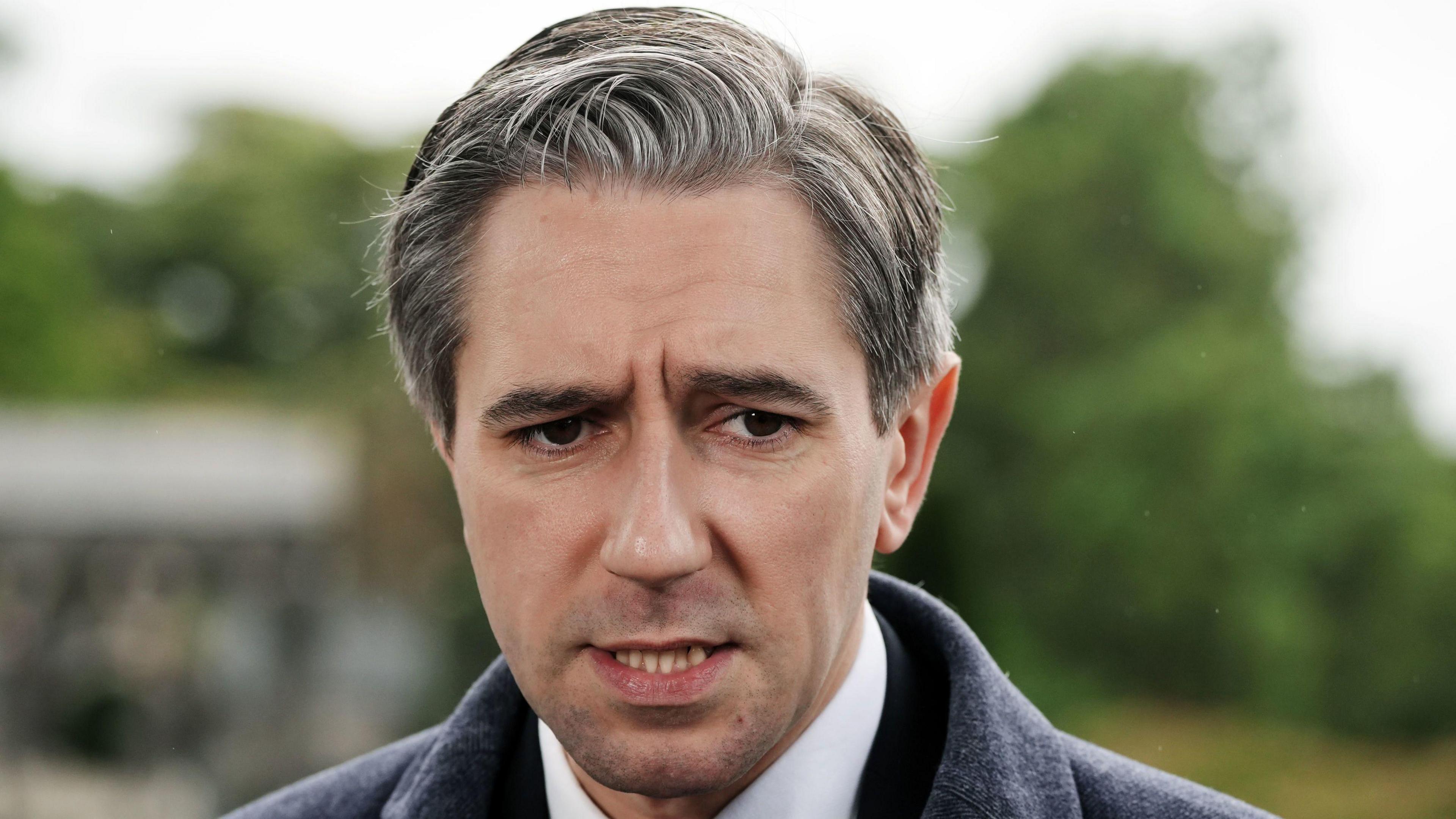Buffalo and TV battles as Irish election hits last days
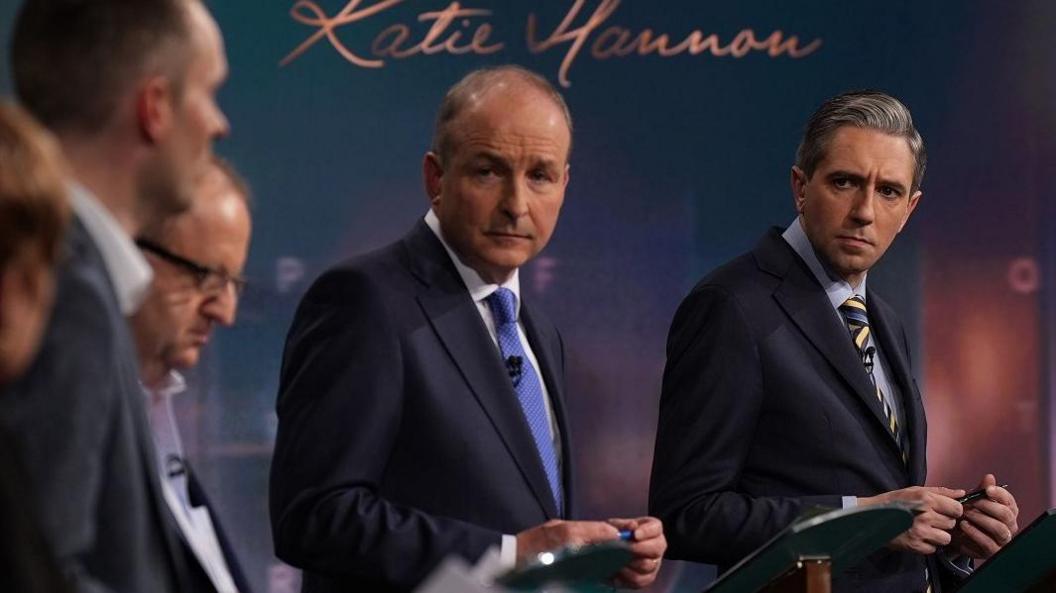
Fianna Fáil leader Micheál Martin and Fine Gael leader Simon Harris during Monday's leadership debate
- Published
"A jockey in the making," the farmer said, approvingly.
The only problem was that Fianna Fáil leader Micheál Martin didn't mount a horse, it was a buffalo.
The outgoing tánaiste (deputy prime minister) was visiting a farm in Macroom in his native County Cork when he decided to seek votes from the "buffalo wing" of the electorate.
It was all a bit of fun, even if there were a few anxious seconds as the fully suited Martin was given a few helping hands to get on board the docile beast.
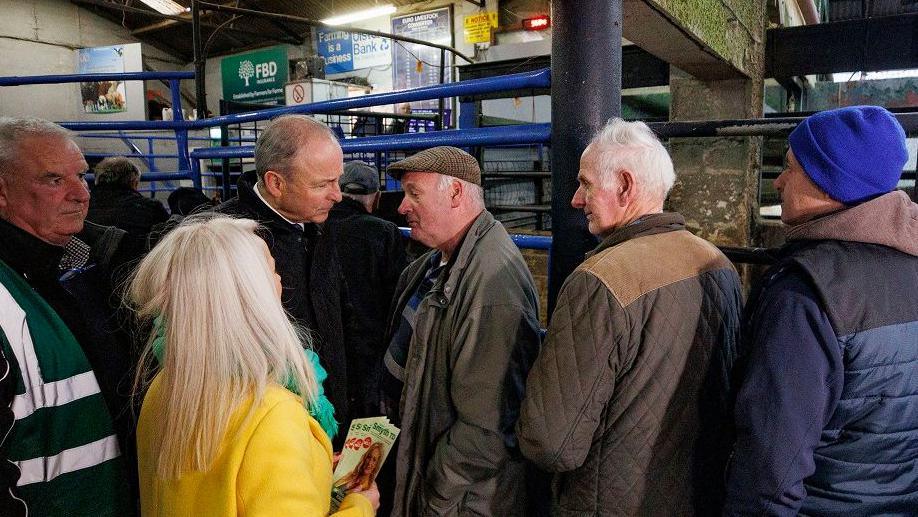
Fianna Fáil leader Micheál Martin meets farmers in Ballyjamesduff in County Cavan
Martin smiled broadly before quickly declaring: "I have to get down now."
His feet had hardly touched terra firma when news that he'd been "locking horns" on a farm began to spread and soon reached arch political rival, Sinn Féin leader Mary Lou McDonald.
"Micheál the cowboy," she joked.
John McGahon court cases
The second week of the election was also the coldest.
It was certainly a cold house for the Fine Gael leadership when an old story got new legs.
It involved one Fine Gael candidate and two court cases.
John McGahon, a member of Seanad Éireann (the Irish Senate) since 2020, was found not guilty in a trial in 2022 of physically attacking another man, Breen White, outside a pub in the border county of Louth.
In a subsequent civil case, McGahon was found 65% liable for damages and was ordered to pay €39,000 (£32,500).
Last Sunday, images of Mr White's injuries were published in the Sunday Times, while a video of the incident also emerged, and the matter suddenly became an issue in the election campaign.
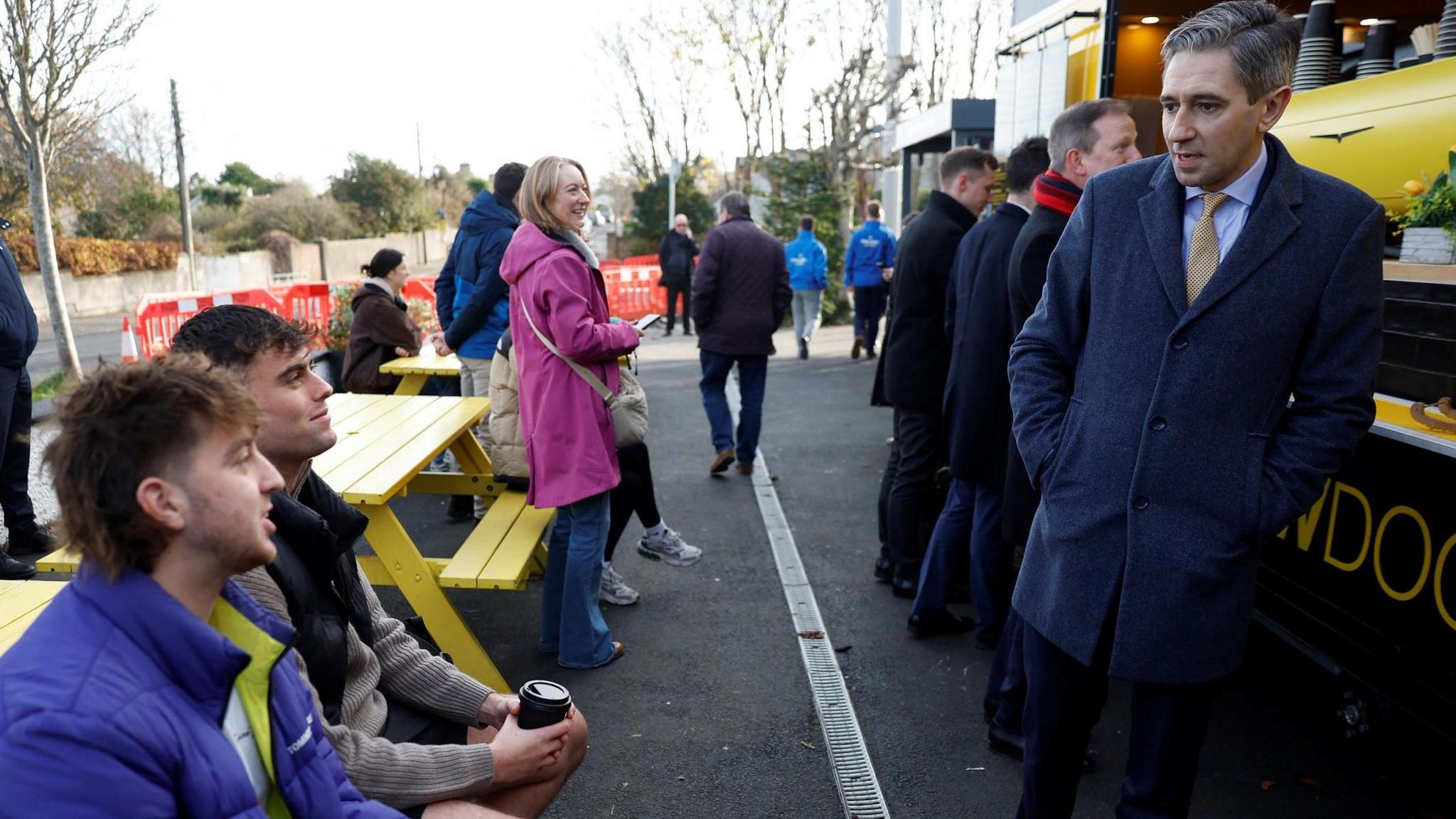
Fine Gael leader Simon Harris, seen at an outdoor cafe in Dublin, has stood by party candidate John McGahon
Questions about the issue featured at the start of an RTÉ party leaders' debate on Monday night when Fine Gael leader Simon Harris was asked for his view on the matter.
He stood by the candidacy of McGahon.
But Martin, and the leader of the opposition McDonald, made it clear before and after the debate that if McGahon was in their parties, he would not be an election candidate.
McGahon said nothing about the controversy all week and remains a Fine Gael candidate.
Party leaders' debate
Many people wondered if the TV debate on Monday night might deliver a critical political slip-up.
The debate had 10 leaders representing their parties - Fine Gael, Fianna Fáil, Sinn Féin, the Green Party, Social Democrats, Labour, People Before Profit-Solidarity, Aontú, Right to Change and Independent Ireland.
It posed the question: how do you get 10 politicians into a two-hour debate, at a fairly late hour in the day, without driving the entire country to sleep?
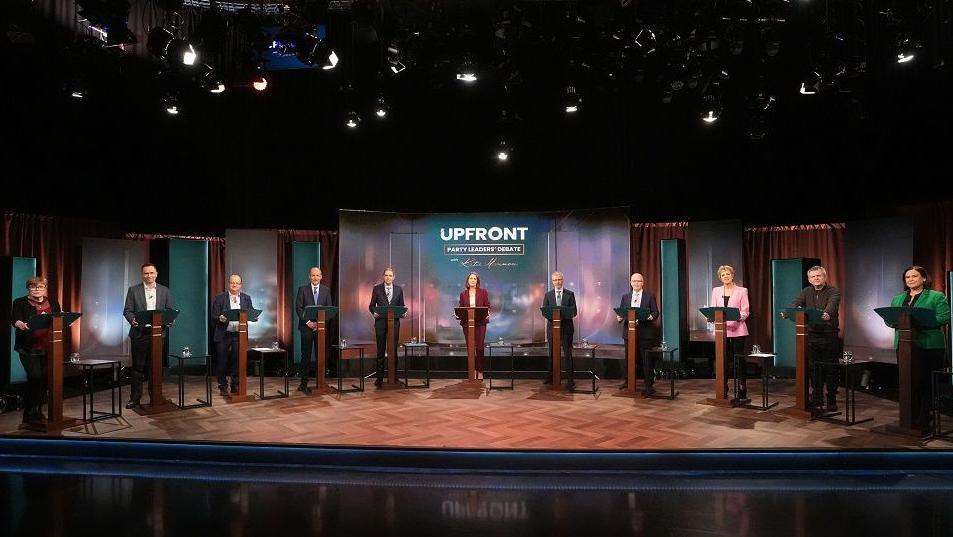
Monday night's debate featured 10 party leaders
In the end, it all worked out well enough, but the big three - outgoing coalition partners Fine Gael and Fianna Fáil and the main opposition party Sinn Féin - did tend to dominate proceedings for long periods.
Both Fianna Fáil and Fine Gael reiterated they would not go into government with Sinn Féin after the election, citing fundamental policy differences on a range of domestic issues.
This stance drew a sharp response from Sinn Féin, with the party accusing Fianna Fáil and Fine Gael of acting as if they had an entitlement to power.
One or other of the parties has been in government in Ireland throughout the last century.
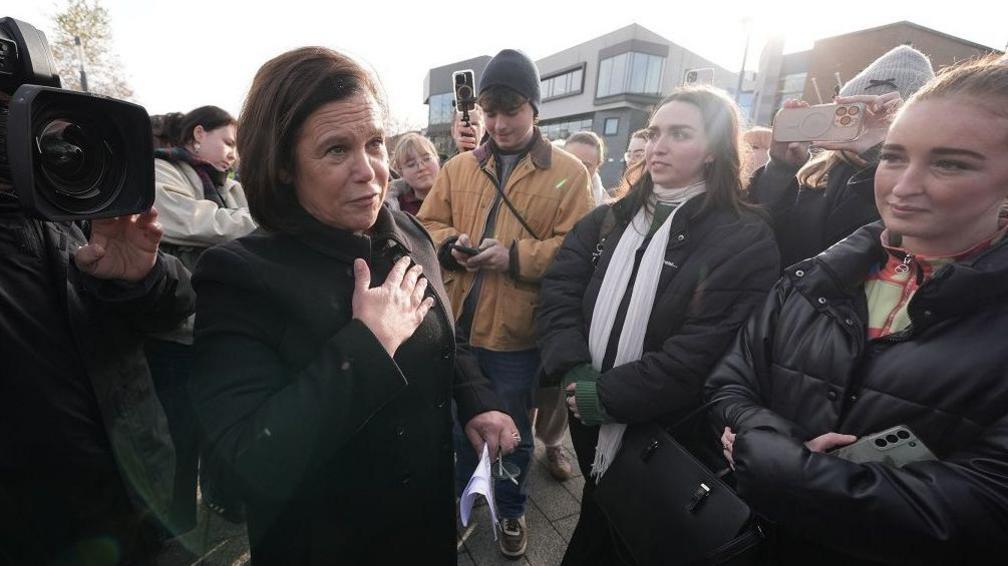
Sinn Féin leader Mary Lou McDonald meets students in Dublin
Sinn Féin has still to serve in an Irish government and the party is hoping its moment will come after this election.
But it may need to find a way with support from smaller parties, or from a disparate cohort of independent candidates who are trying to win seats in different parts of the country.
The debate also had some other tetchy moments, between all the participating party leaders, but it didn't provide any knock-out blows.
At the end, everyone was still standing, and no one fell off the horse (or the buffalo).
There was, however, a difficult end to the week on Friday for outgoing taoiseach (prime minister) Simon Harris who had an awkward encounter with a member of the public.
Charlotte Fallon stopped him while he was campaigning in Kanturk, County Cork to ask why disability care workers like her had been "ignored" in the budget.
A clip of the tetchy exchange has been viewed more than two million times, and other party leaders used it as an example of voters not being listened to.
Harris has since apologised for not giving Ms Fallon the time she "deserved" to discuss her concerns about low pay in her sector - he said he spoke to her on Saturday morning and has offered to meet her.
Related topics
- Published8 November 2024
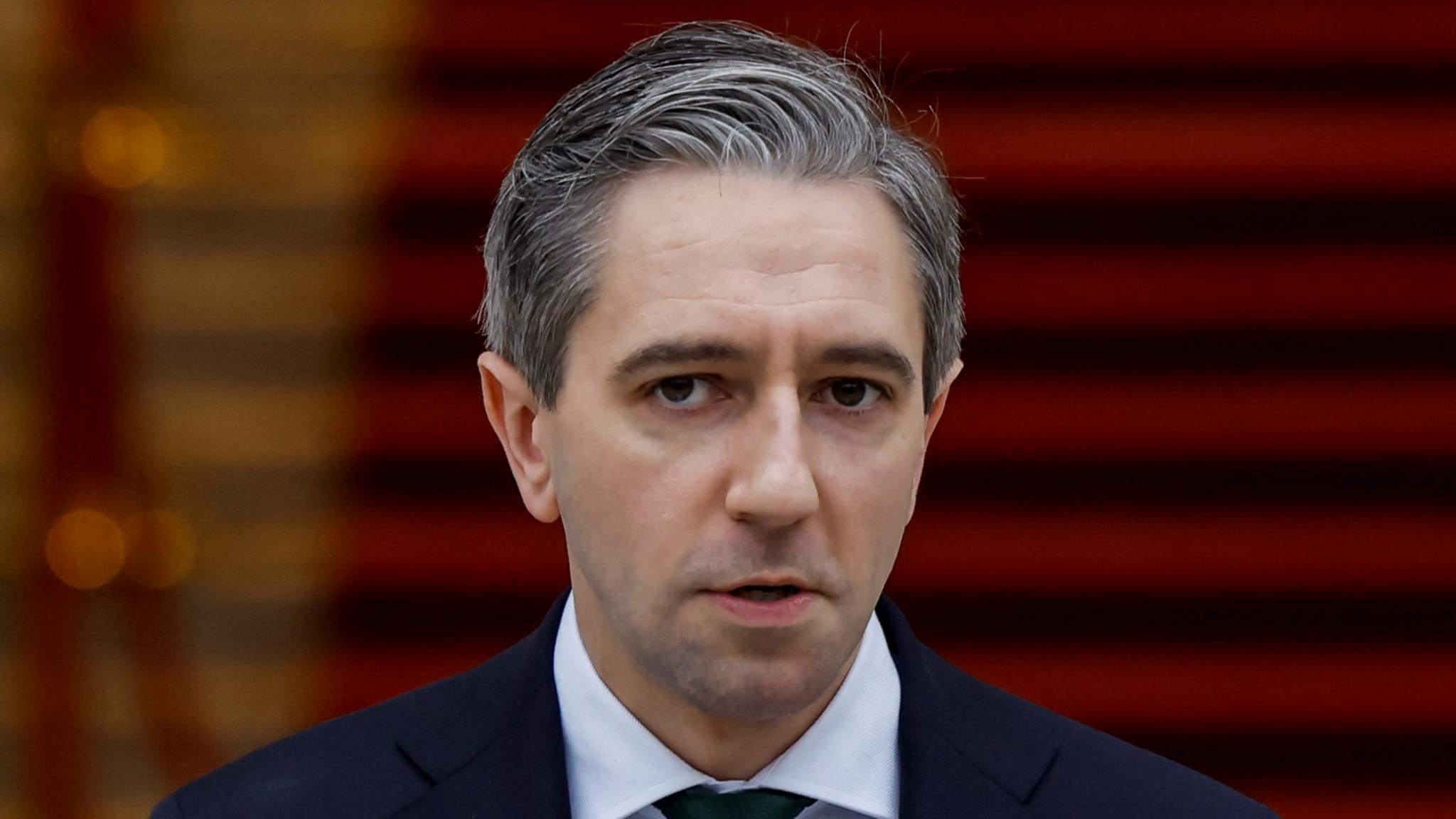
- Published9 November 2024
